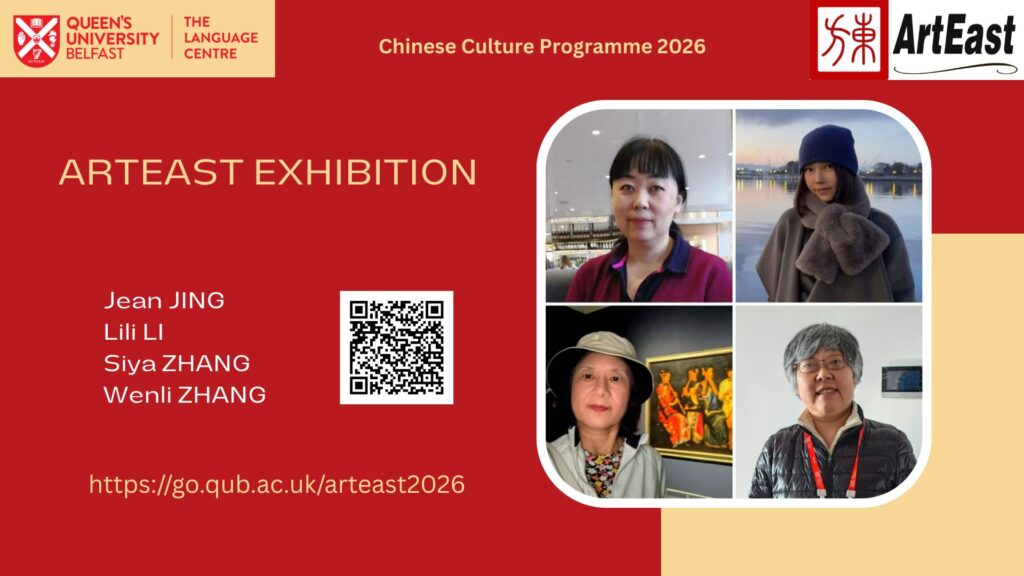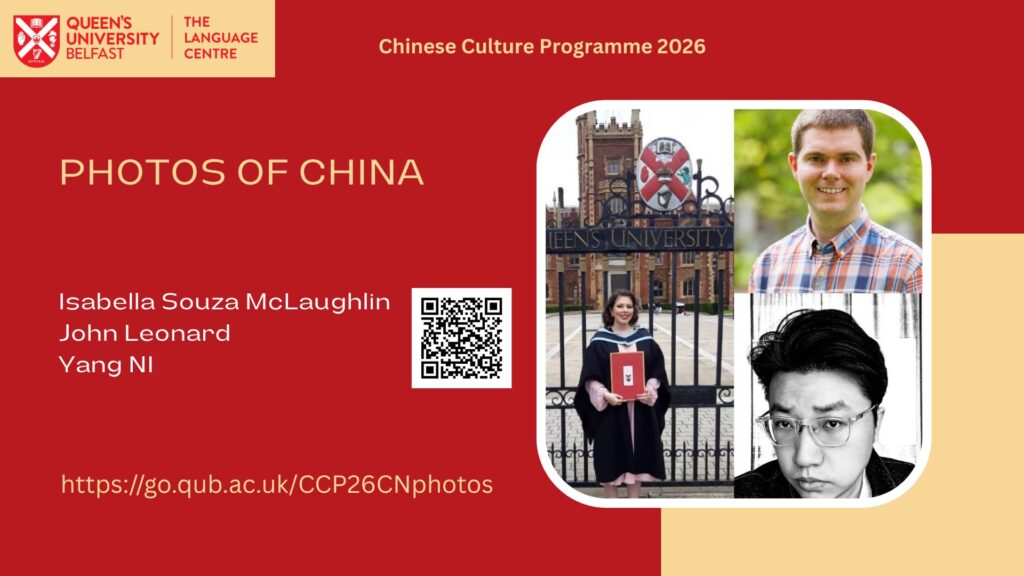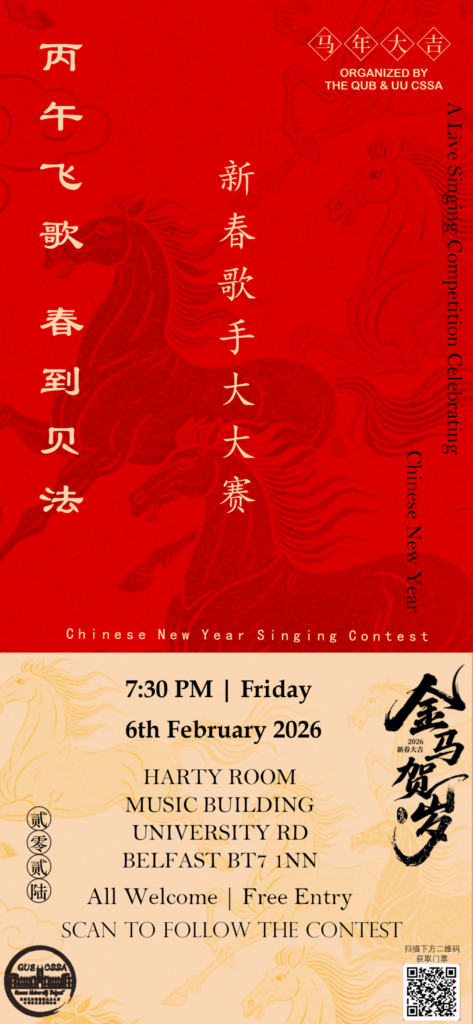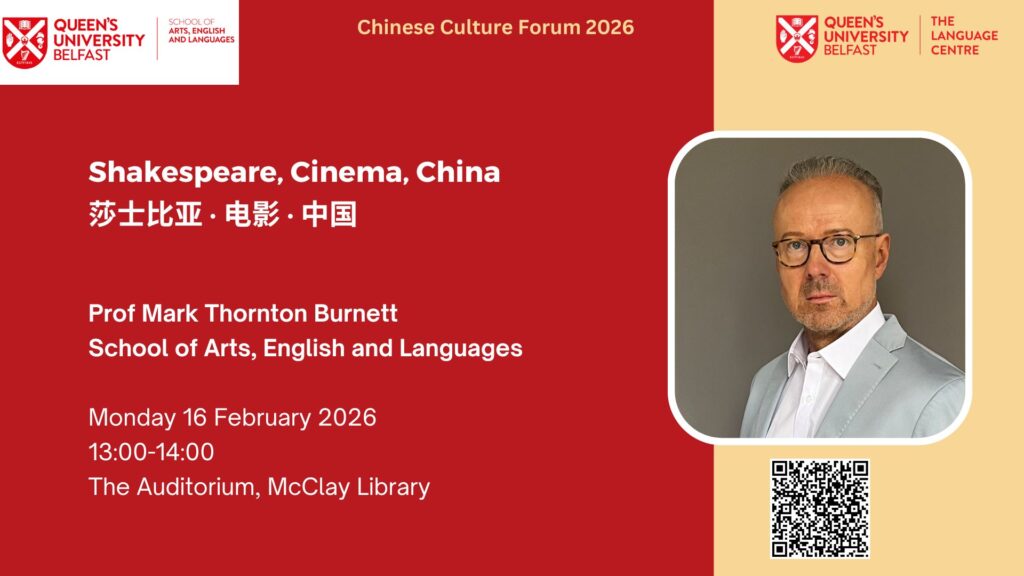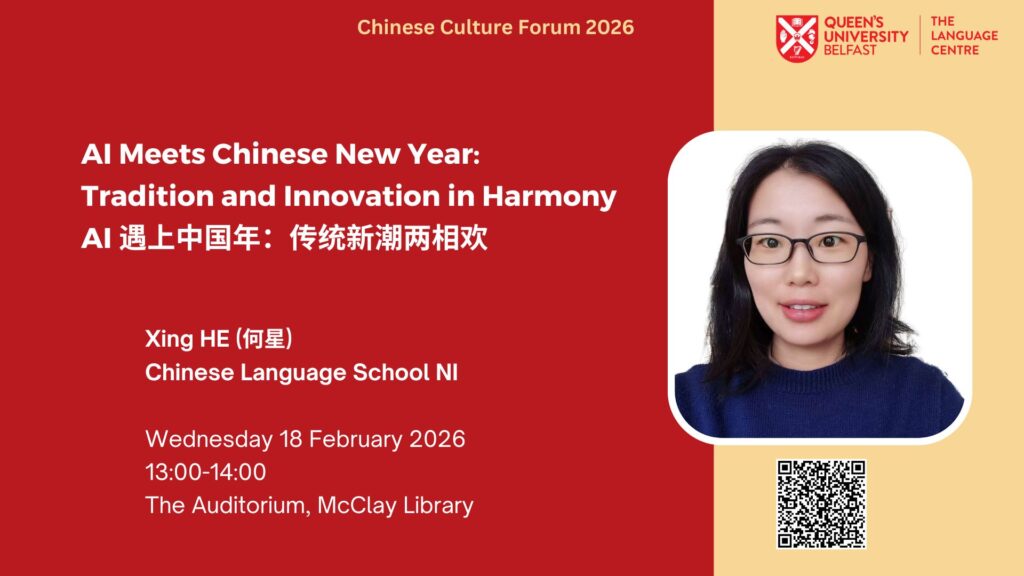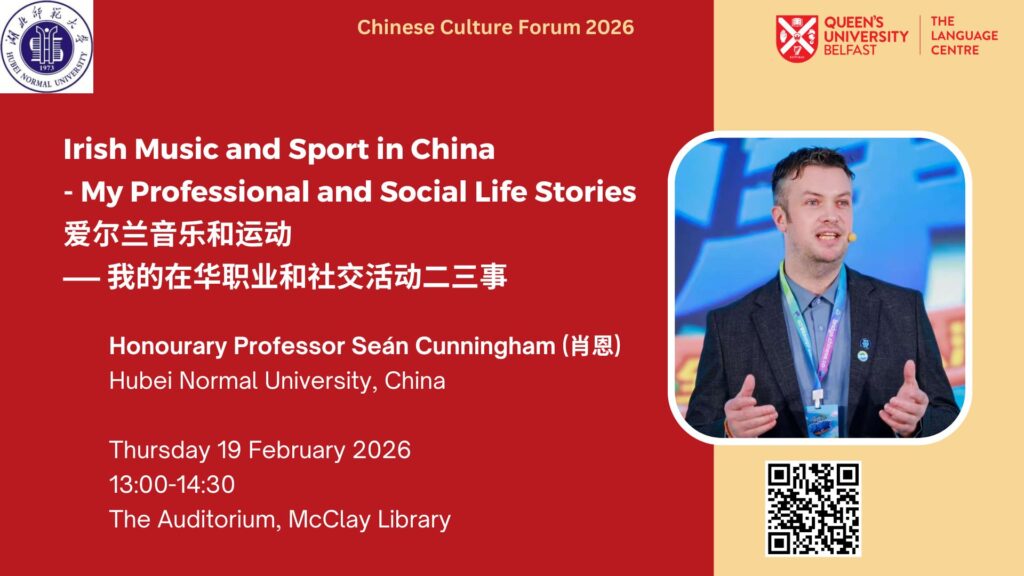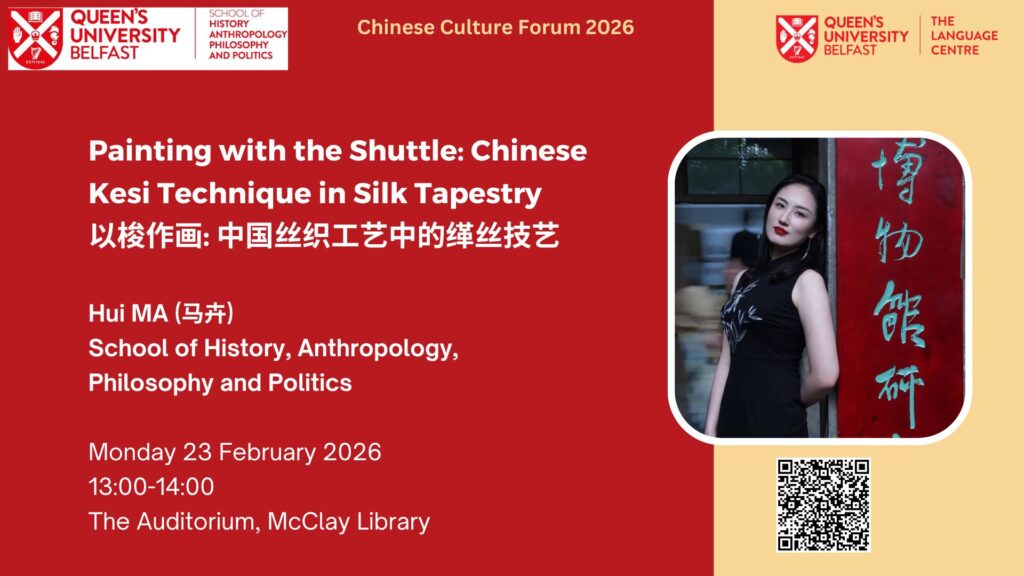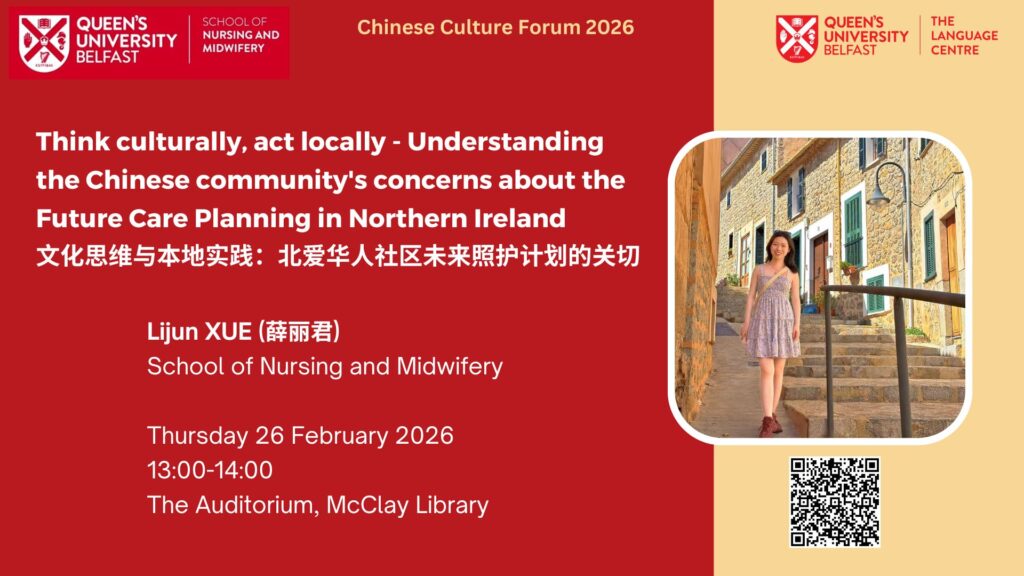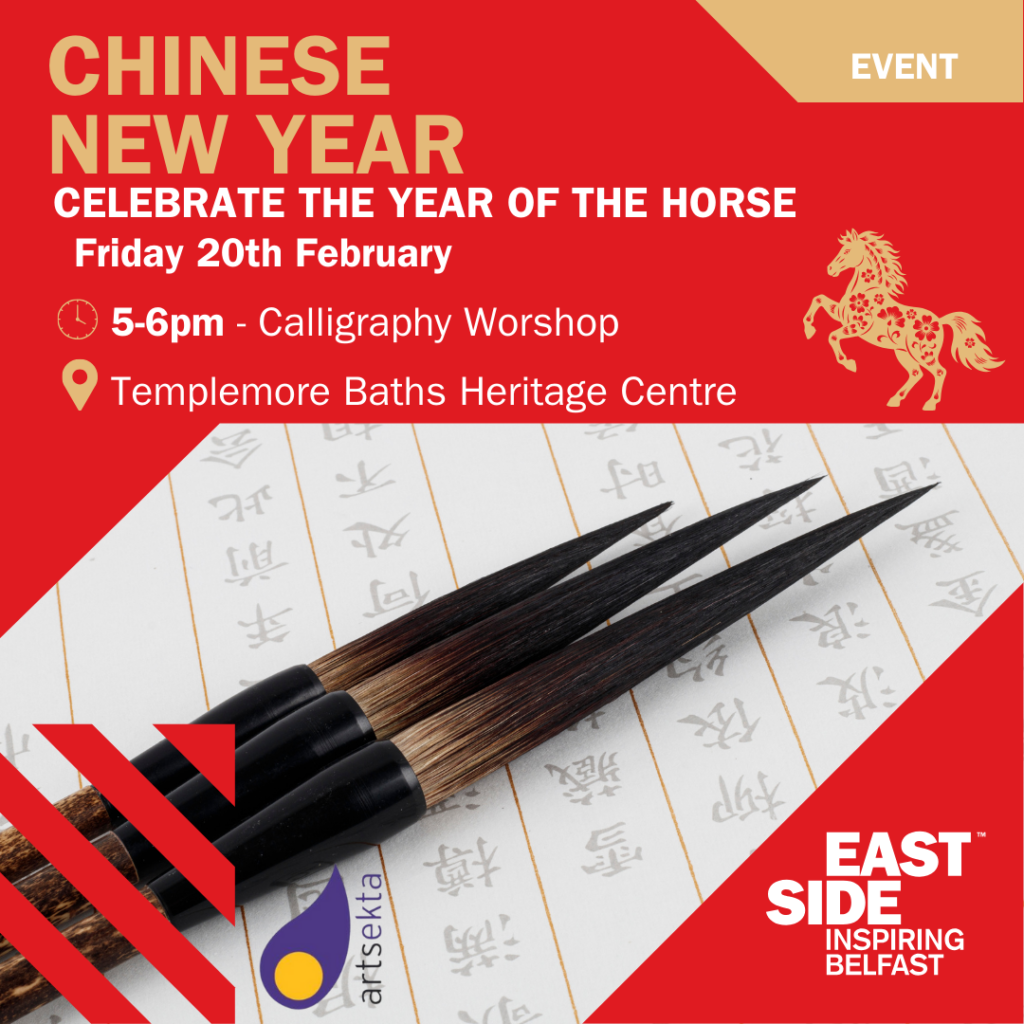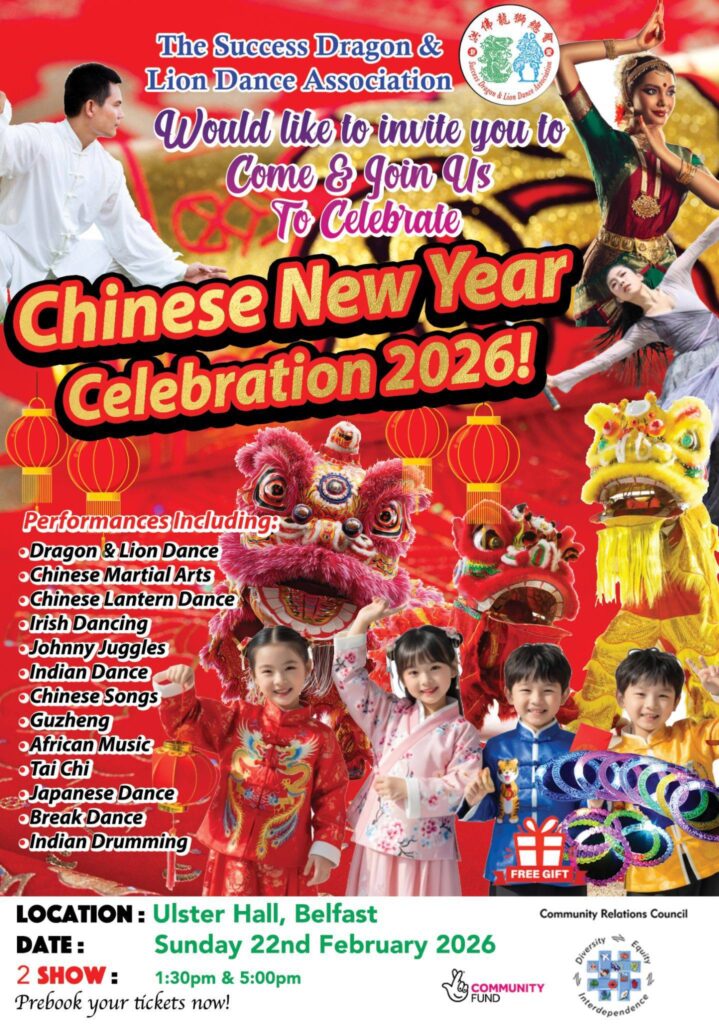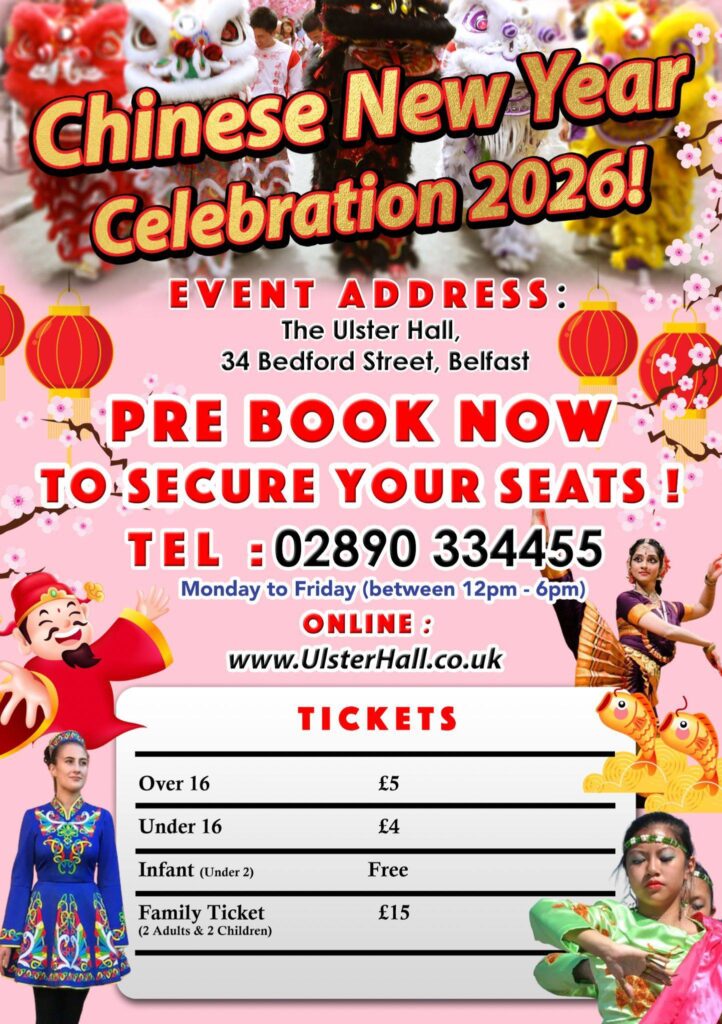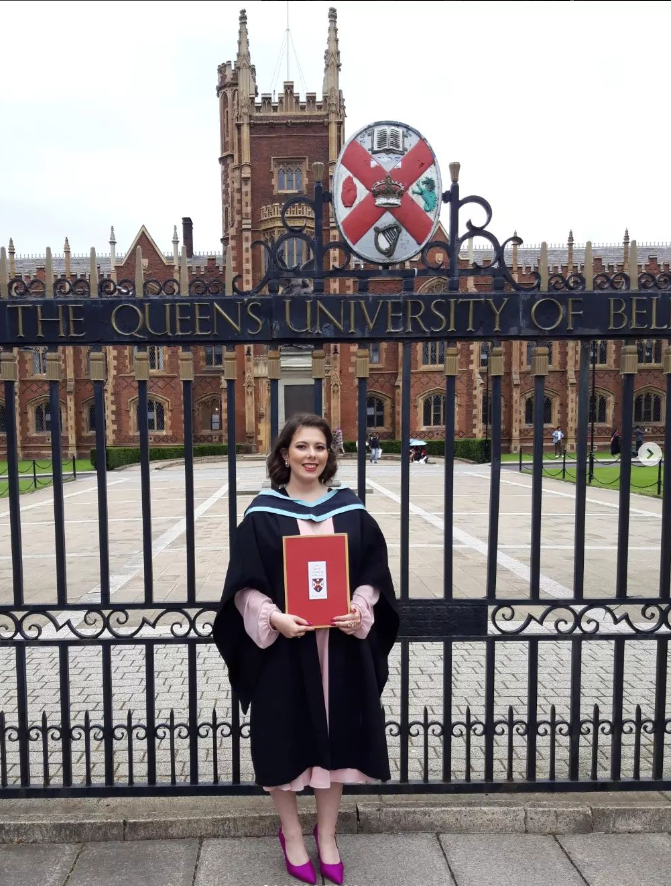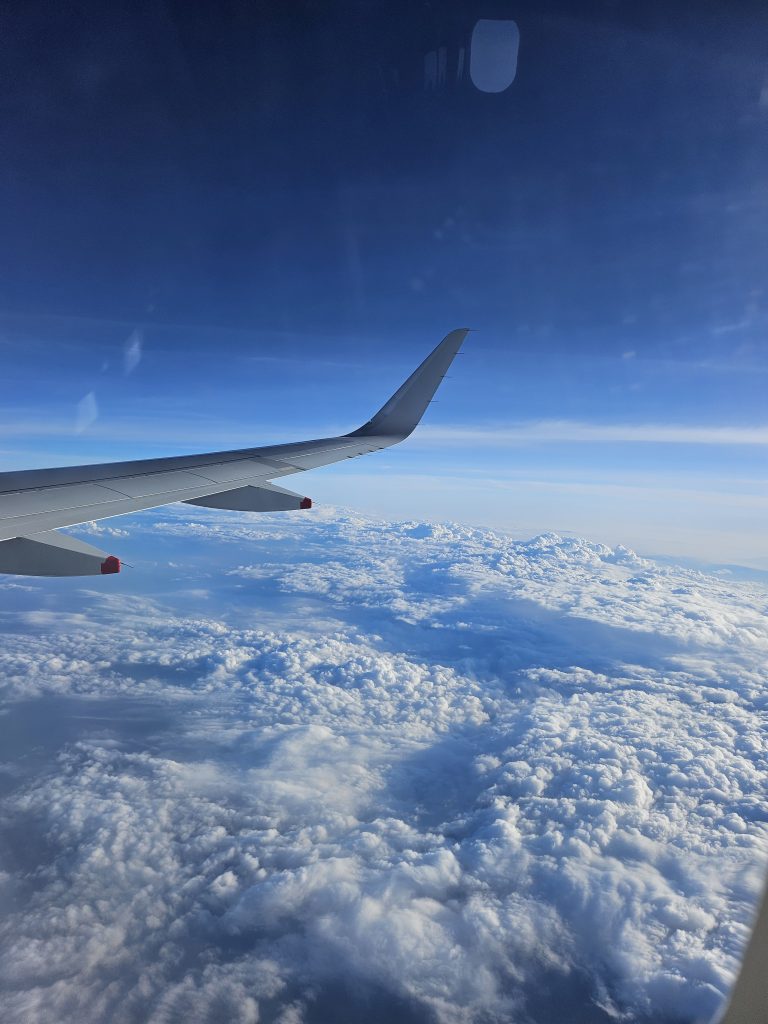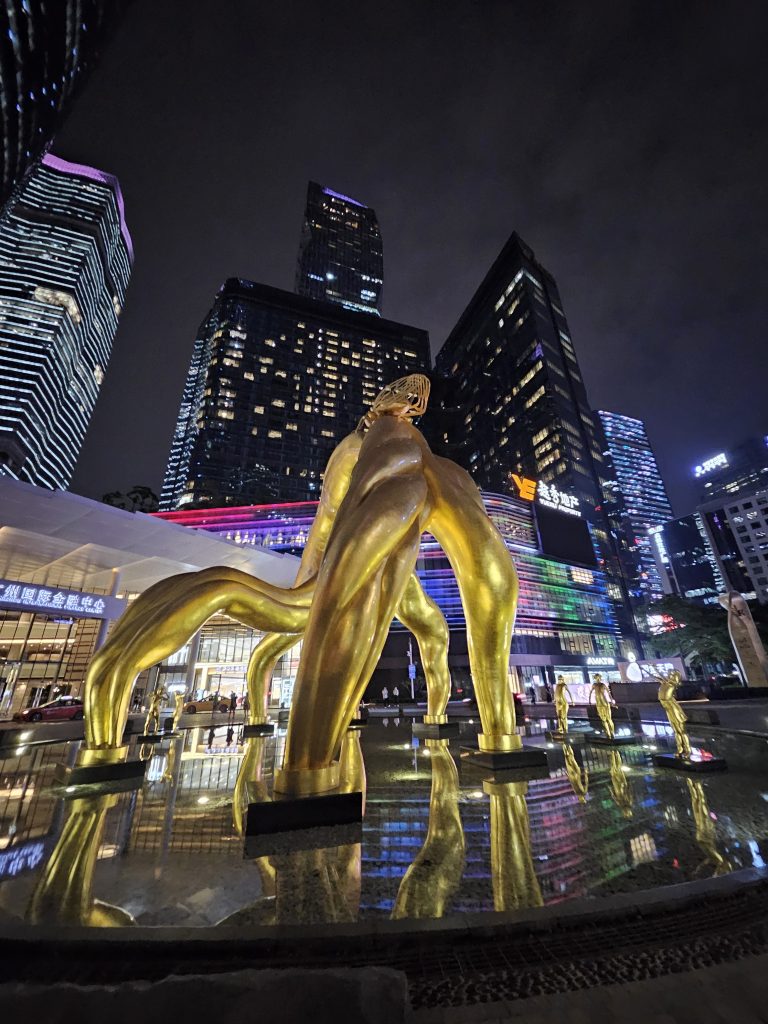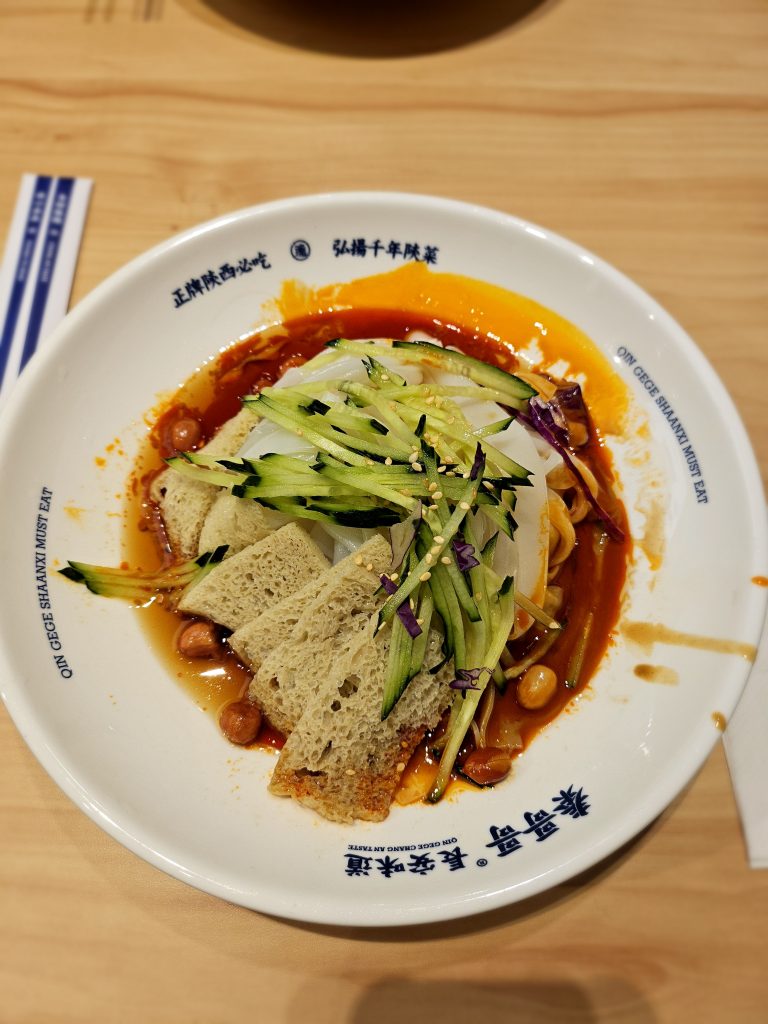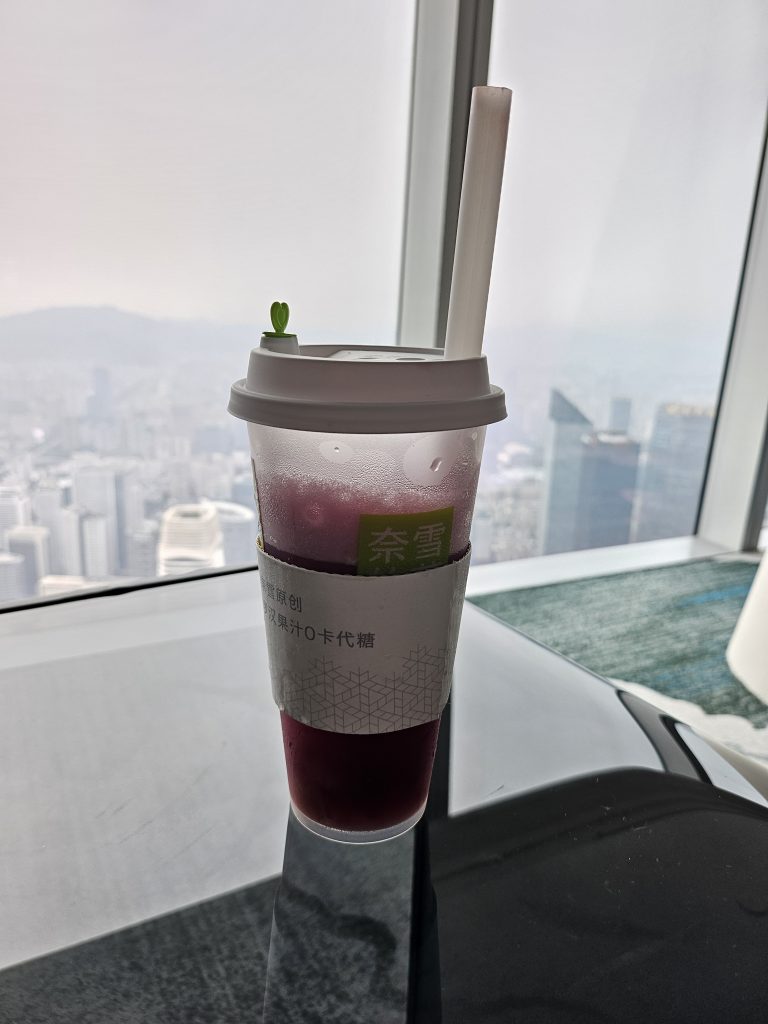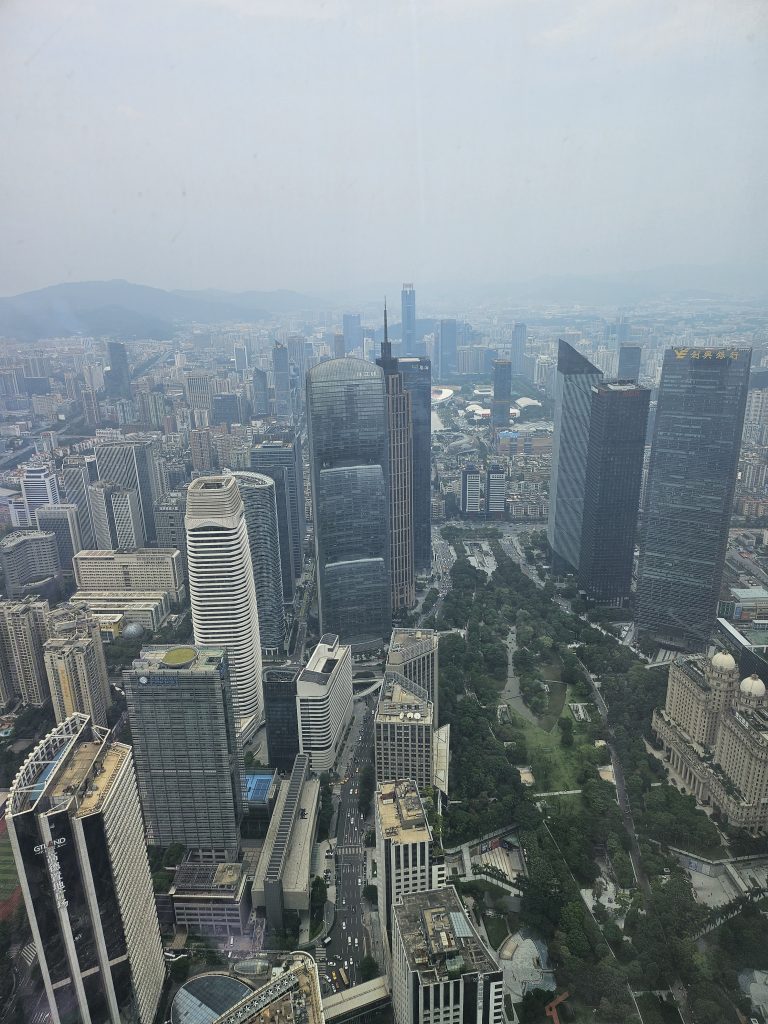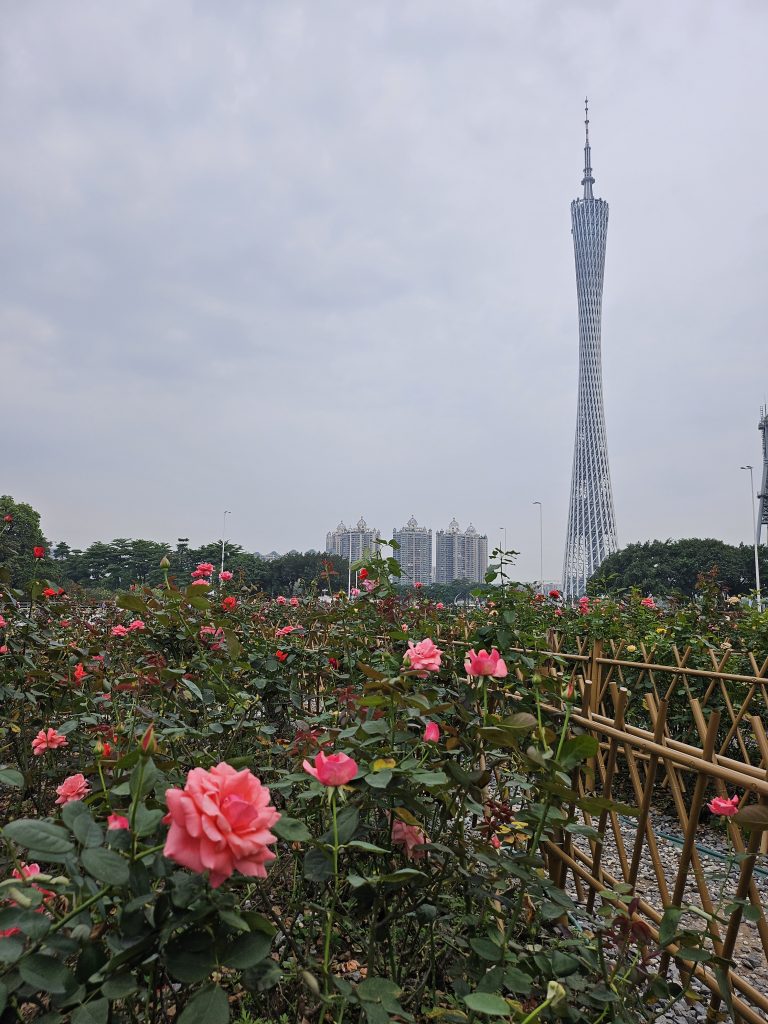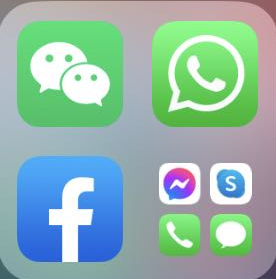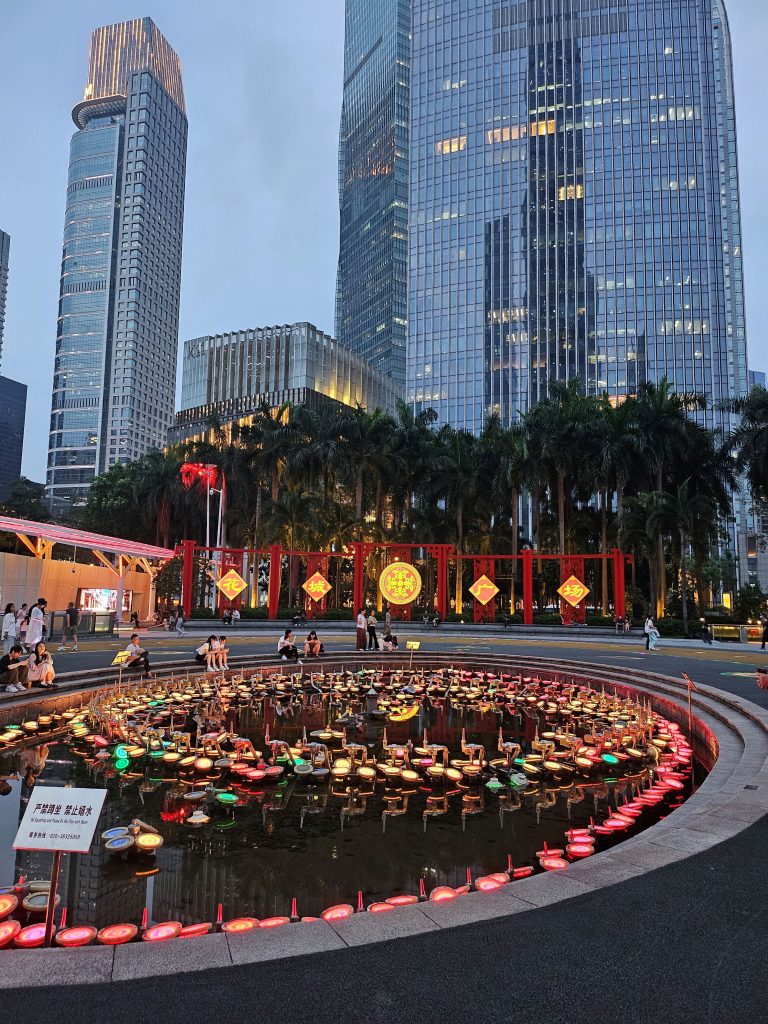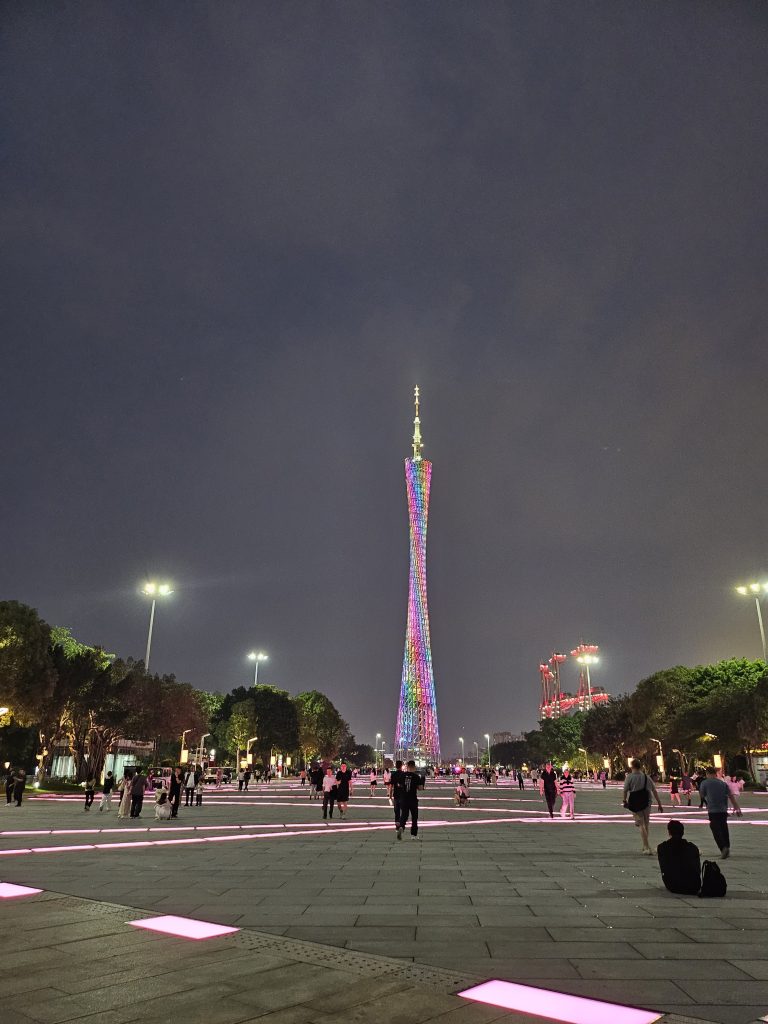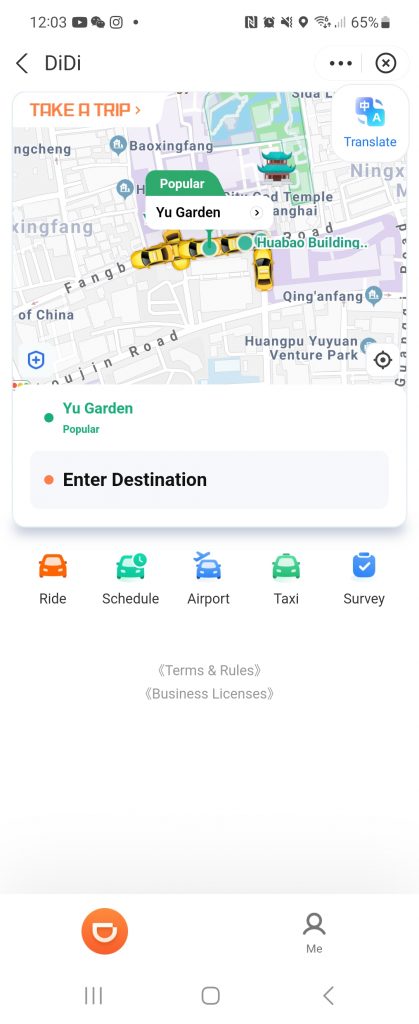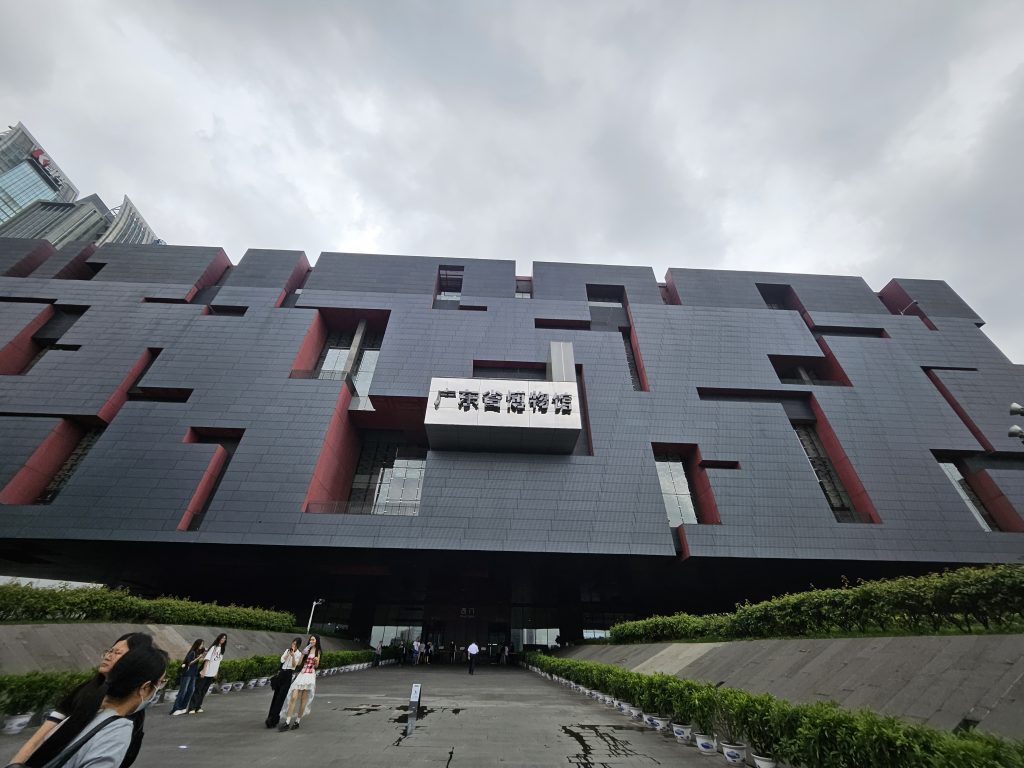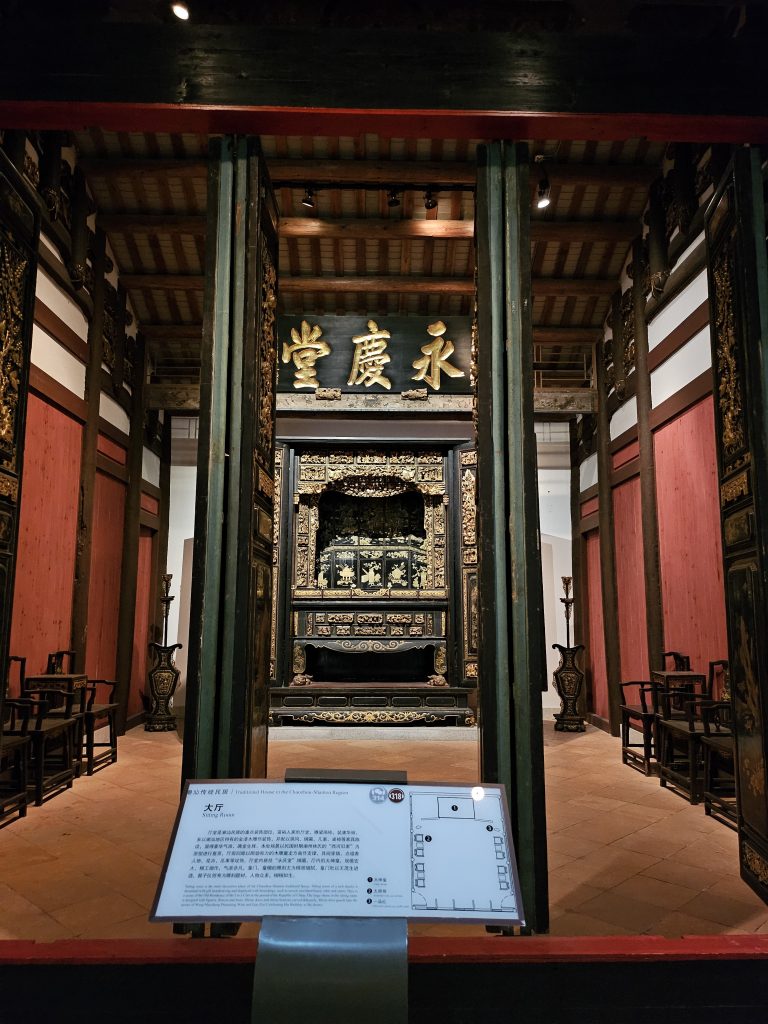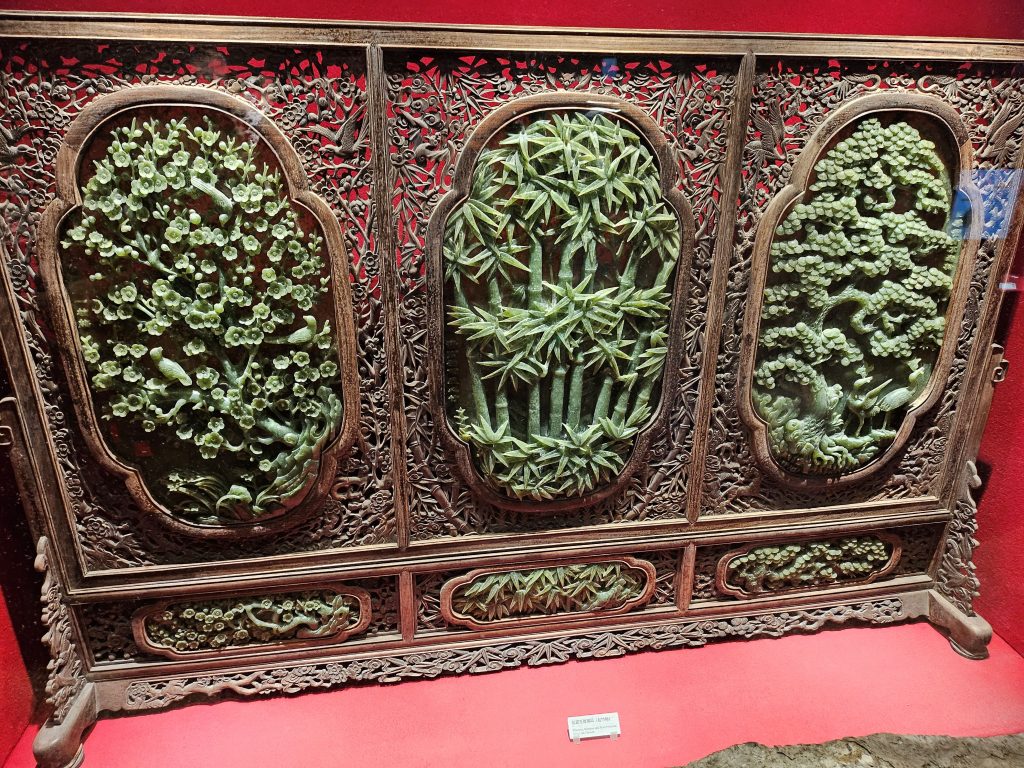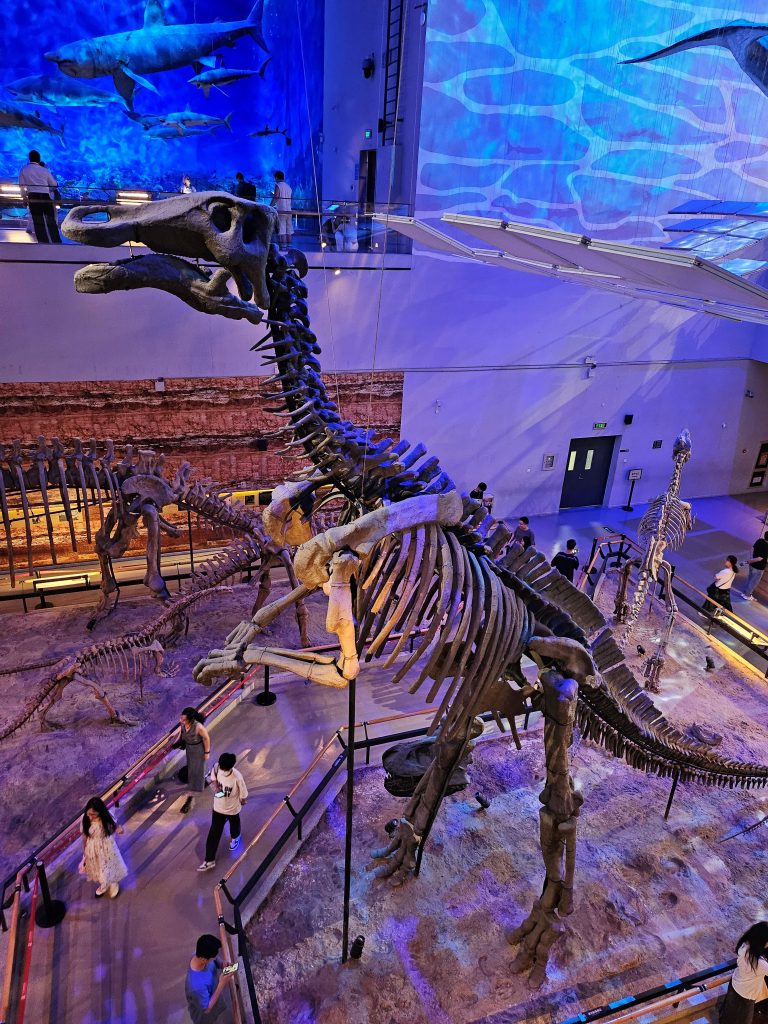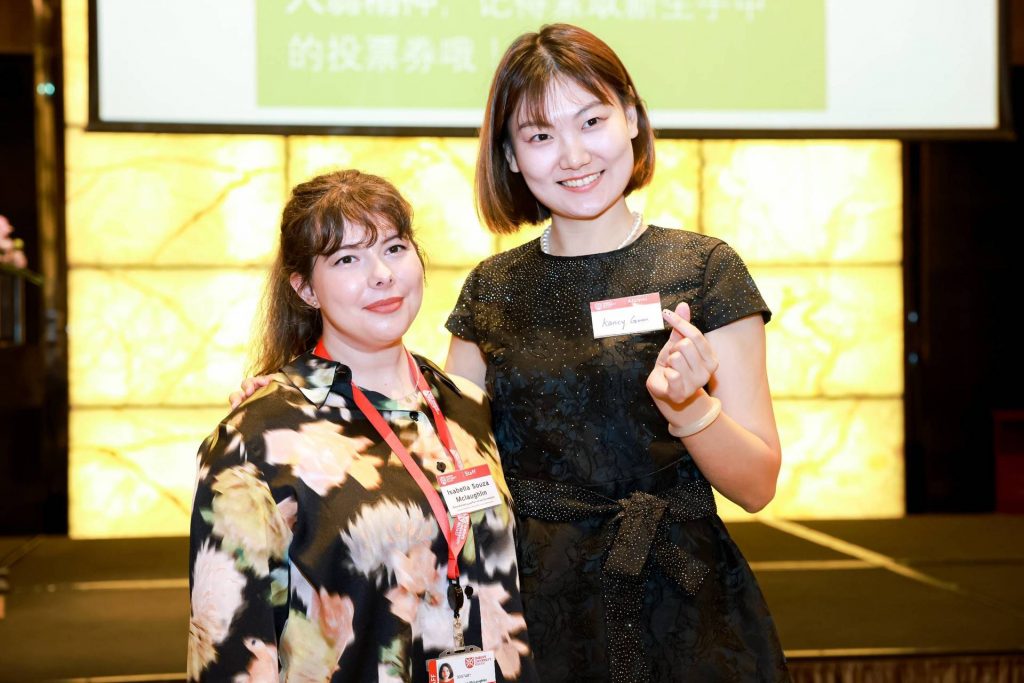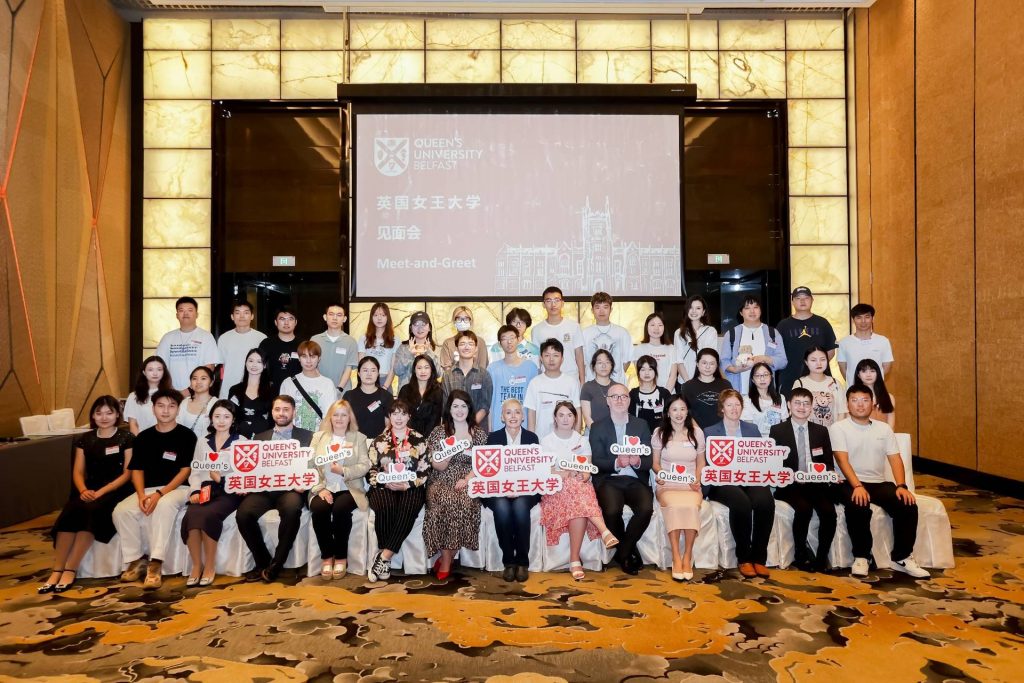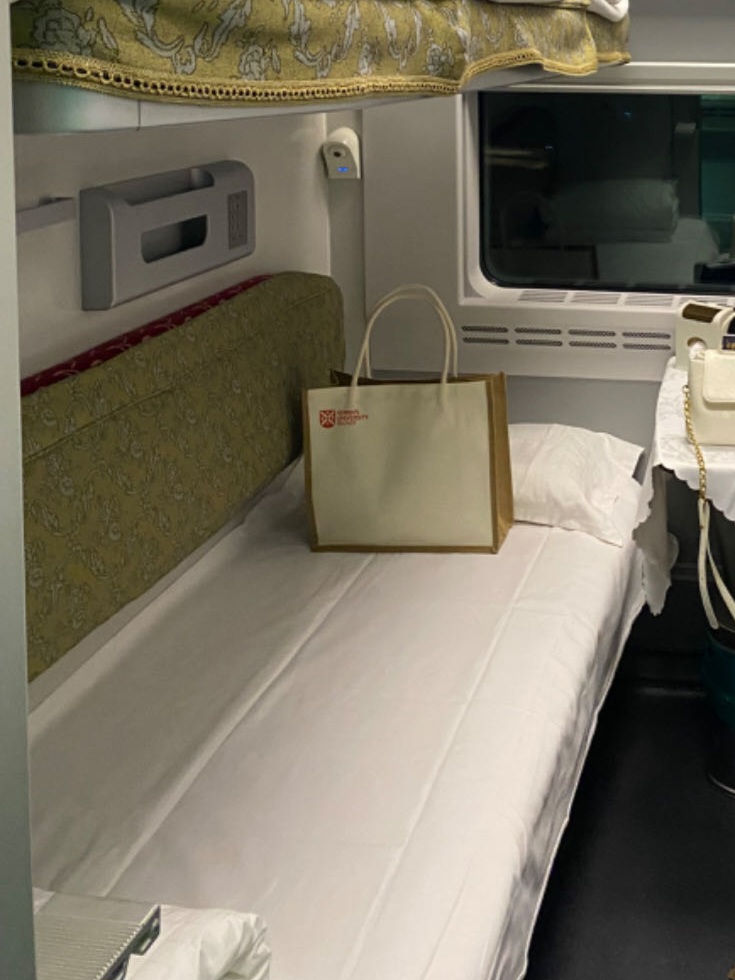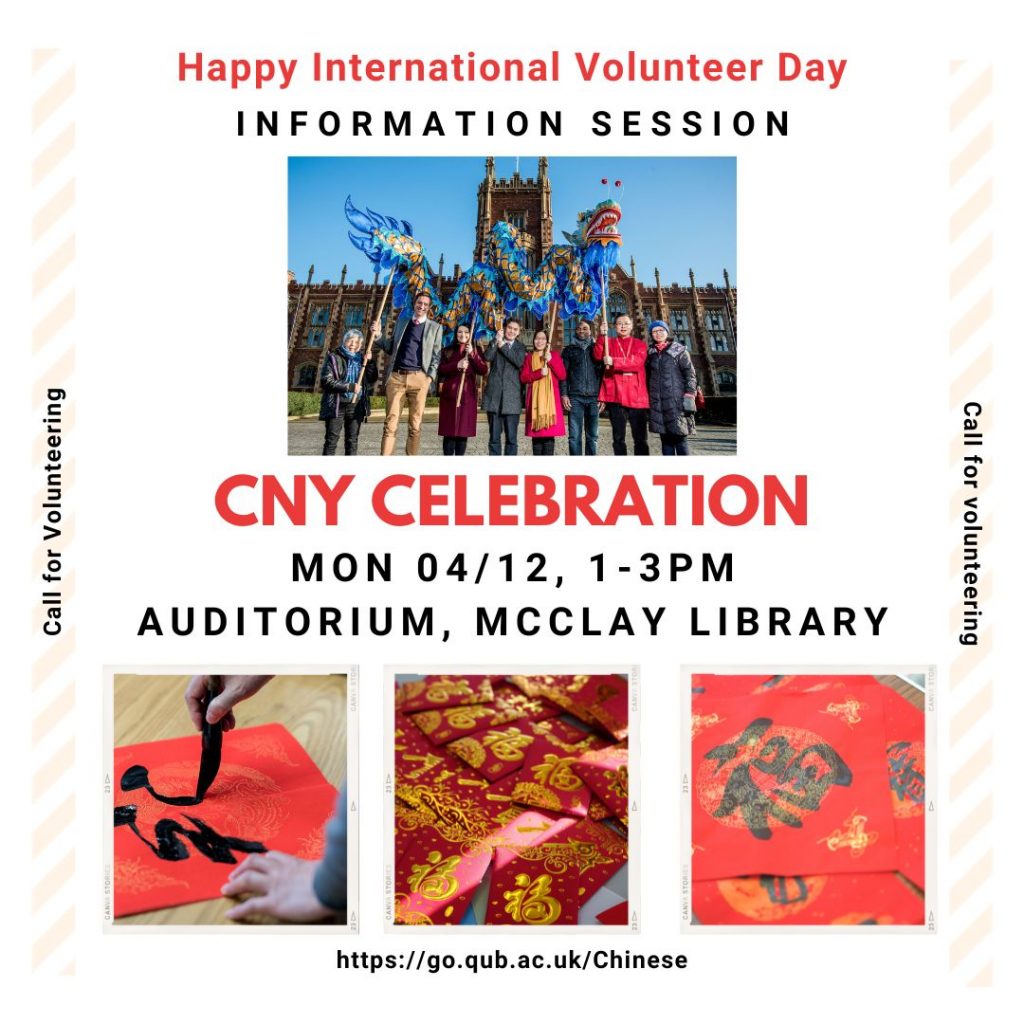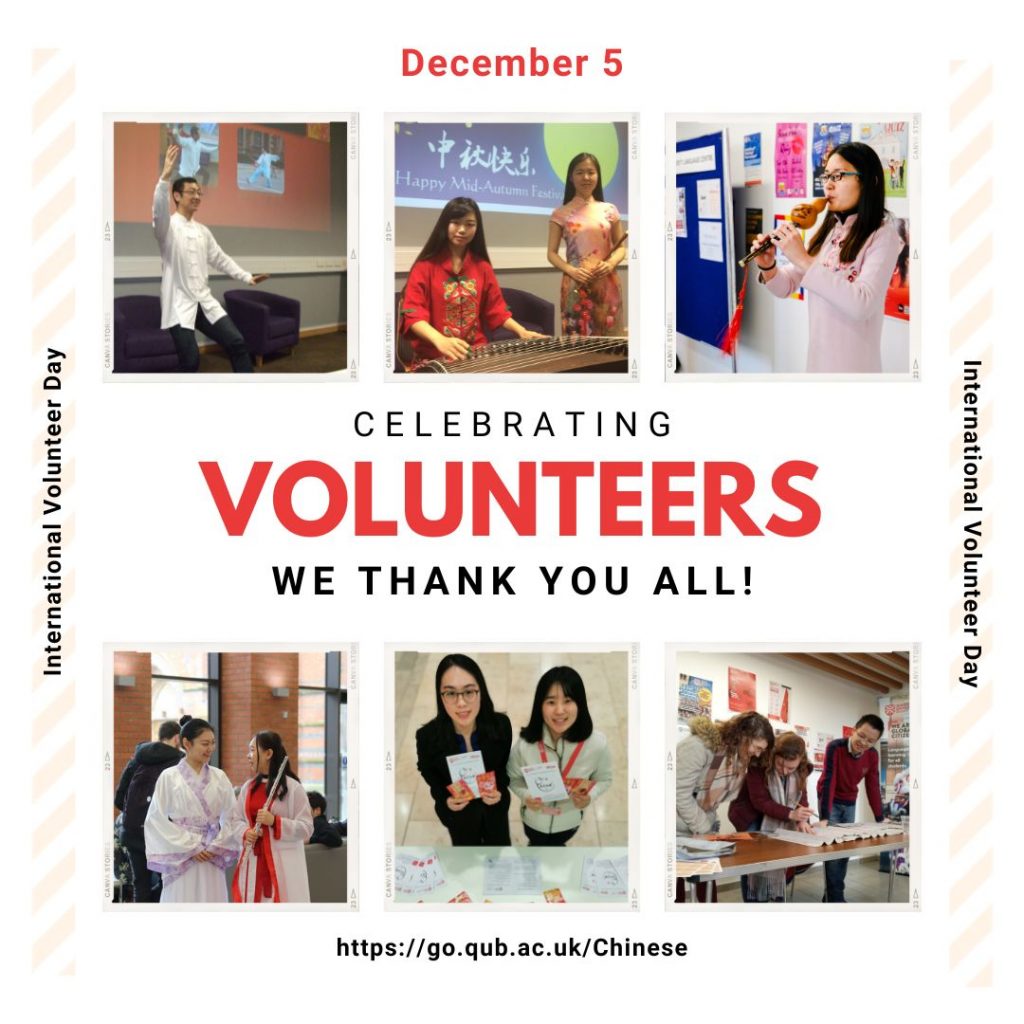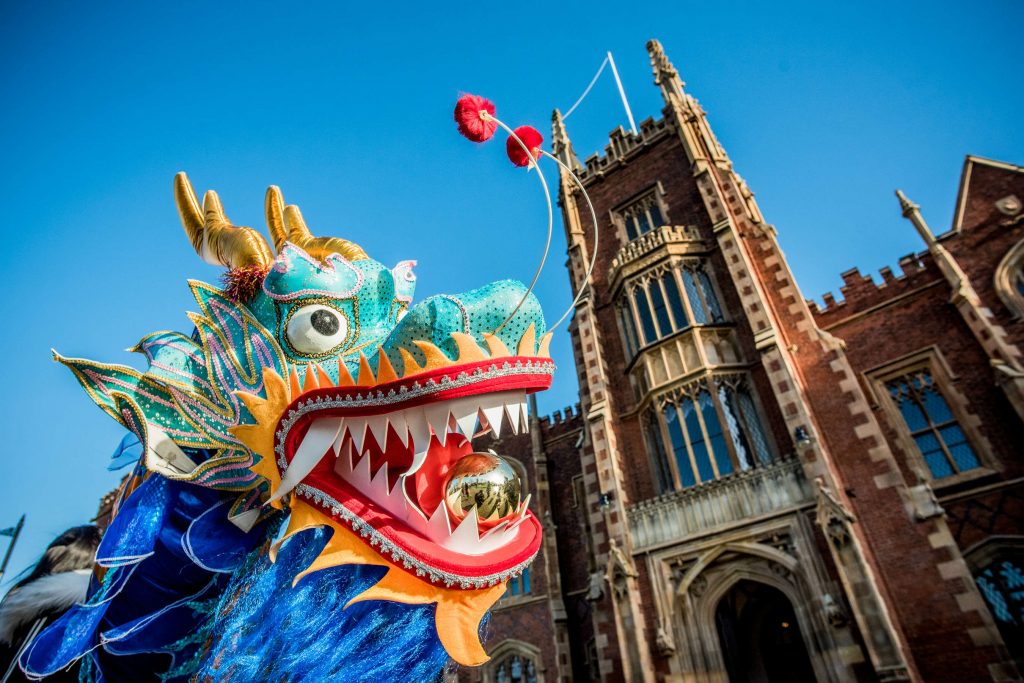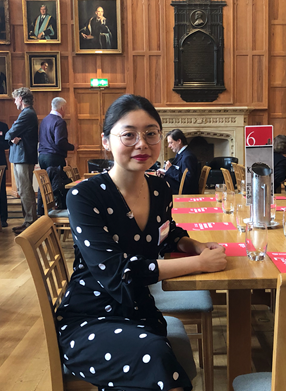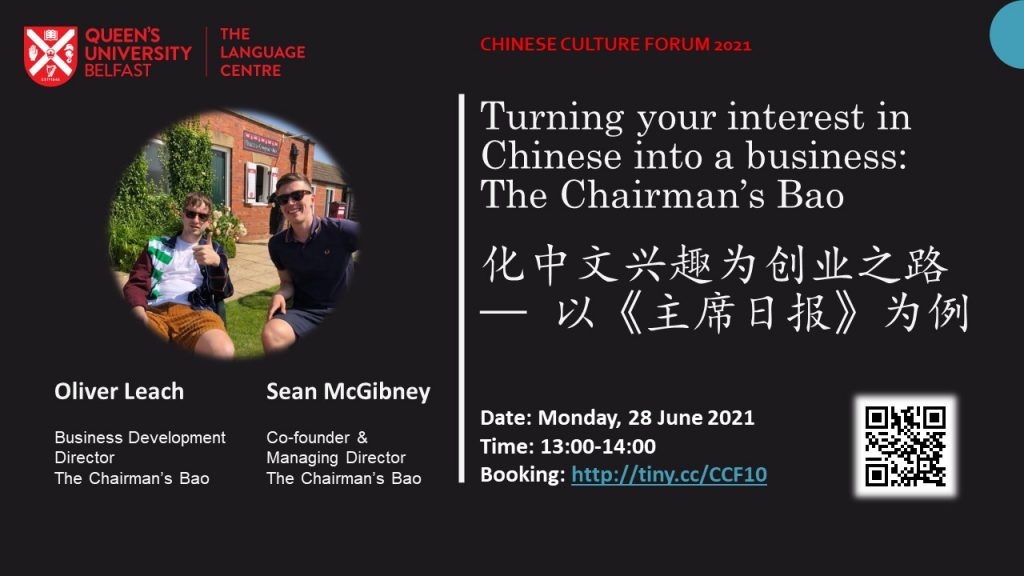Celebration CNY at Queen’s
With the Year of the Horse fast approaching, Queen’s University Belfast has released its celebration programme, alongside a few civic Chinese New Year (CNY) celebrations. In this post, we would like to highlight the events and activities that may generate shared interest.
Queen’s colleagues are warmly invited to take part in a range of cultural activities celebrating the Year of the Horse. The celebrations will highlight a Launch Event on Friday 13 February, 12:00–1:00 pm, at One Elmwood Cube, followed by a Dragon Parade and Cultural Fair in the One Elmwood Foyer and Cube areas throughout the afternoon.
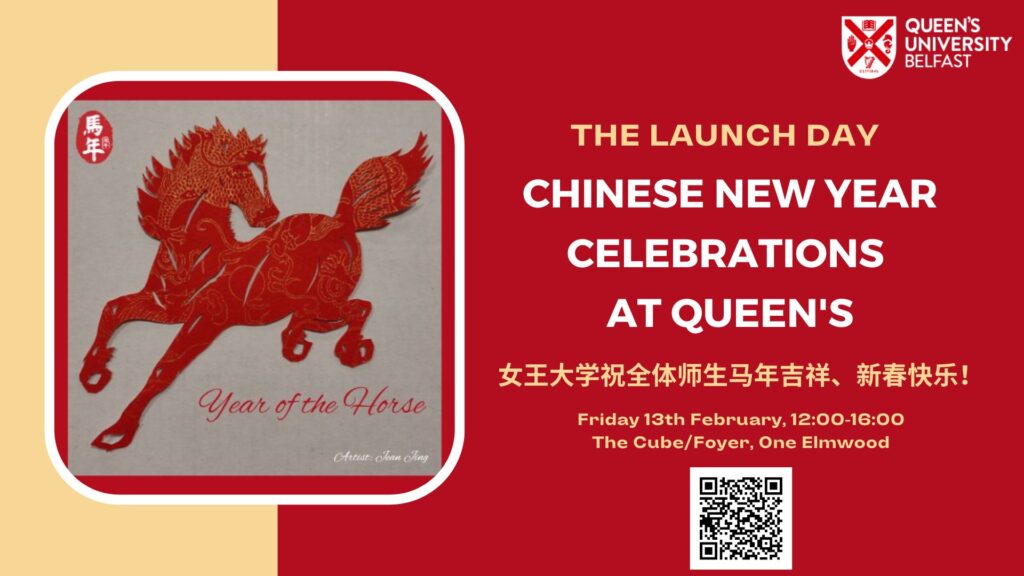
Online Exhibitions
We are grateful to have collected paintings from ArtEast Club members in the 6th consecutive year and the photos of China with intercultrual reflections from three Queen’s photographers.
The coming weeks’ highlights are:
Student-led activities (Friday 06/02)
- CNY Arts and Crafts Workshop & Drawing Competition
1:00–4:00 pm, The Cube, One Elmwood - Chinese Singing Competition
7:30 pm, Harty Room, Music Building
Culture Talks (Monday 16/02 – Thursday 26/02)
Beginning from Monday 16th, there will be a cluster of culture talks contributed by Queen’s academics, research students and guest speakers from a wide range of subject areas and professional backgrounds, as below:
Fun Time with Table Tennis (Saturday 28/02)
Sponsored by QUB iRise Staff Network and One Elmwood Student Engagement Team, we would like to invite all staff members and students, and their families as well, to join this fun and friendly event to engage with this popular sport among the Chinese communities, as well as providing an opportunity for enhancing student and staff wellbeing through sport. Both beginners and more advanced players are welcome to sign up for the fun event, with an appreciation of its unique culture, as well as developing some practical skills in body movements and mediation.
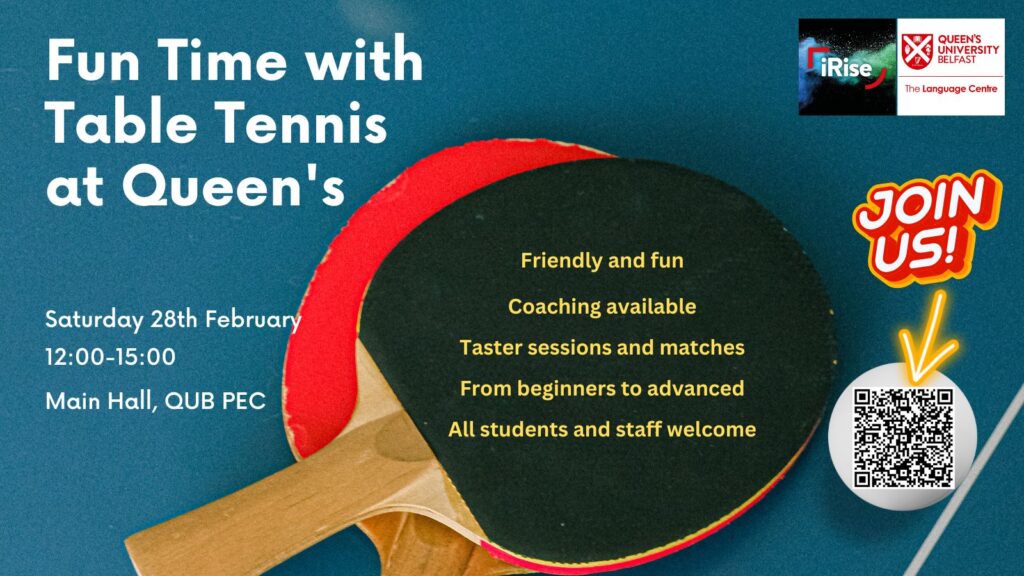
Launch of Bridges to China Project (Sunday 01/03)
Finally, it is worth recommending this launch of Bridges to China Project, which is a collaboration between Queen’s researchers and their civic partners including Chinese Welfare Association, National Museum NI and AvliaMedia on creating a repertoire to enhance public understanding of Chinese heritage and culture in Northern Ireland. It also aims to foster community partnerships leading to further collaboration and community engagement around the longstanding links between Northern Ireland and China.
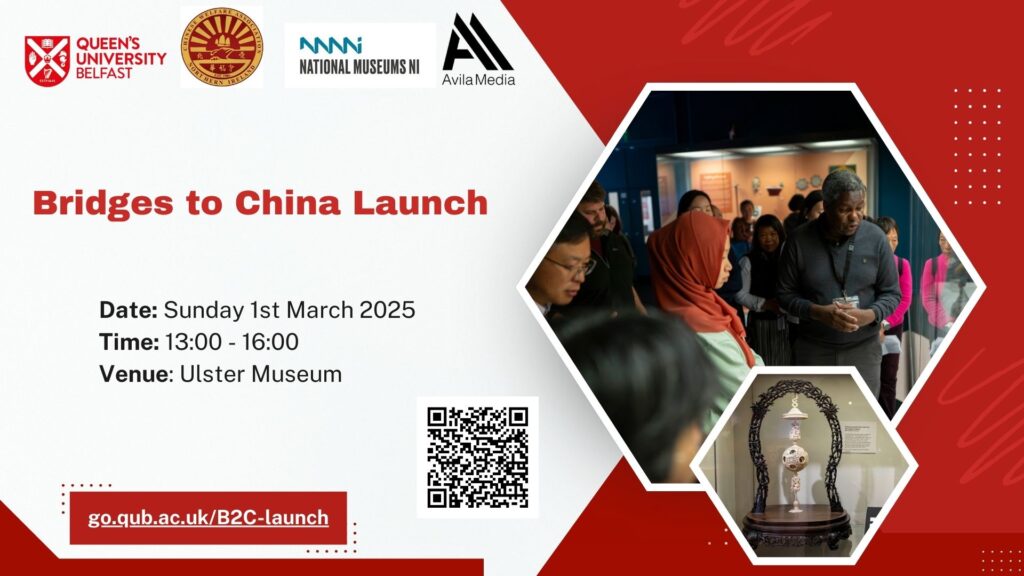
For more information and registration, please visit the full programme below. You are all very welcome to join us and enjoy the cultural celebrations of the Year of the Horse. If you would like to help with us in any of the events and activities, you may consider filling in the volunterring form below.
Celebrating CNY in Belfast
If you would like to know more about CNY celebration events outside Queen’s, we hope you find the following information useful.
Monday 16/02 by CCC NI and CWA NI
The annual Spring Festival Gala, jointly organised by the Chinese Chamber of Commerce, N.I. and Chinese Welfare Association N.I., returns this year to the Europa Hotel. Save your date on Monday 16th February at 6pm.
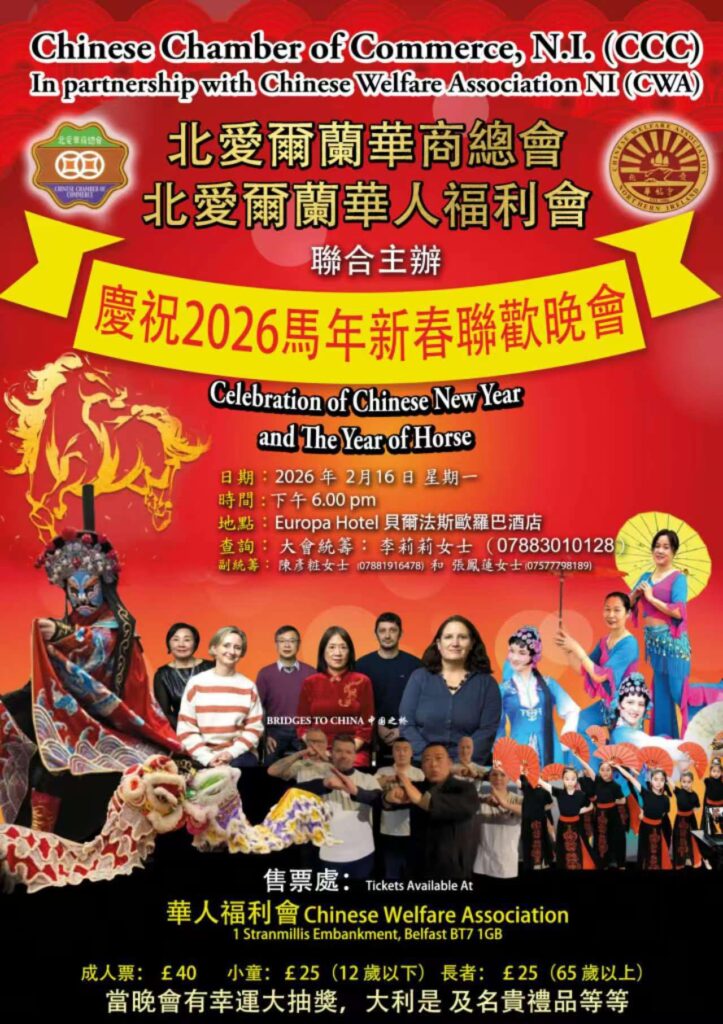
Friday 20/02 by East Side Arts (with Artsekta and Belfast Film Festival)
Celebrate the Year of the Horse at Templemore Baths Heritage Centre with a creative workshop and light hearted action packed film.
- Chinese Calligraphy Workshop (5pm, £15 per person)
- Belfast Film Festival Screening “Ride On” (7PM)
Sunday 22/02 by Success Dragon and Lion Dance Association
The Chinese New Year Celebration returns to the Ulster Hall Belfast on Sunday 22nd February 2026 celebrating the Year of Horse. Come to enjoy a day is full of fun and joy, rich in Colours and Culture. With over 12 global dances and music not to be missed.
Saturday 28/02 by ABCP NI
值此佳节来临之际,全英华人教授协会北爱尔兰地区诚挚邀请您参加2026年春节庆祝活动,共庆团圆,同贺新岁!本次活动旨在促进学术交流、增进友谊,并为在北爱工作学习的华人学者及家庭提供一个温馨团聚的平台。我们期待与您共度一个充满知识与欢笑的下午,并在晚宴中共叙情谊、喜迎新春。如您计划出席,请于 2026年2月14日(星期六) 前报名。参与对象: 北爱尔兰地区大学老师、学者、博士生、访问学者及家属。
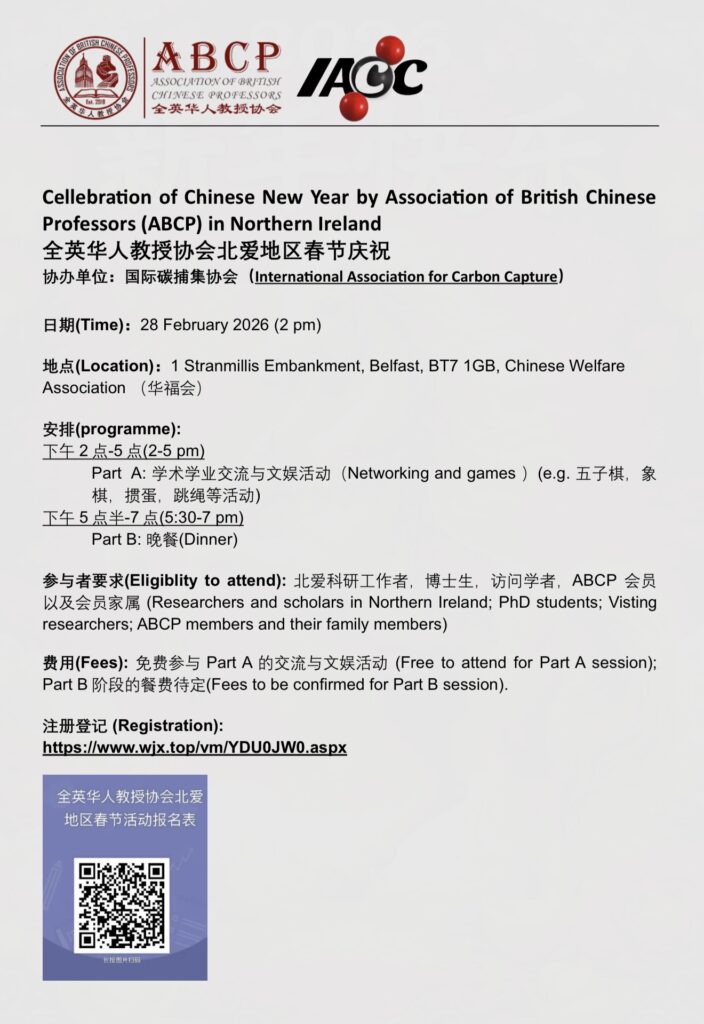
Happy Year of the Horse! 马年快乐!

